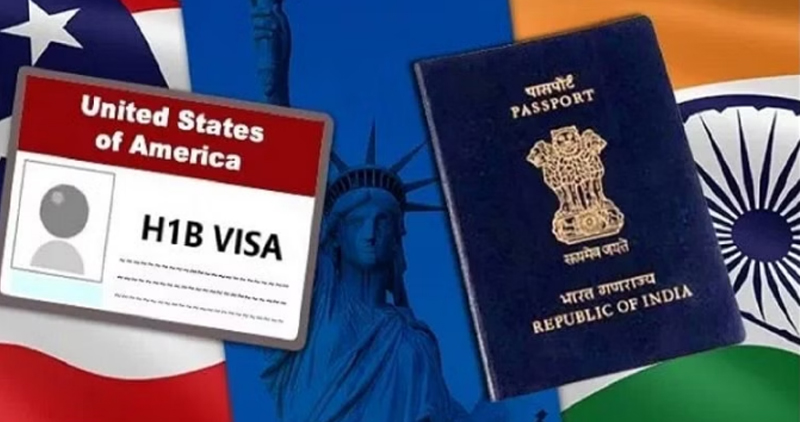Good News: Good news for American H-1B visa holders; Now work can be done in Canada also, family will also benefit.
Canada’s Immigration Minister Sean Fraser announced on Tuesday that the government will create an open work-permit stream to allow 10,000 US H-1B visa holders to come and work in the country. This will be a new work permit that the Canadian government will provide to H-1B visa holders in the US.
Family member also got a chance to come
The Canadian Ministry of Immigration, Refugees and Citizenship has issued a release. It added that the program would also provide study or work permits for family members of H-1B visa holders. The release further said that thousands of workers in high-tech sectors are employed in companies that have large operations in both Canada and the US. As such, those working in the US often have H-1B specialty occupation visas. It has therefore been decided that as of July 16 this year, H-1B special occupation visa holders in the US and their accompanying family members will be eligible to apply to immigrate to Canada.
Will be for three years
Under the new order, approved applicants will get an open work permit for a period of up to three years. H-1B special occupation visa holders coming from the US will be able to work anywhere in Canada, the release said. Their family members (husband, wife or anyone else who is dependent on them) will also be eligible to apply for a temporary resident visa with a work or study permit as required.
Government will also introduce an immigration stream
According to Canadian media reports, Fraser said that by the end of this year, the federal government will also introduce an immigration stream for some of the world’s most talented people to come to Canada to work for tech companies. Whether there is a job or not. However, the Immigration Minister did not clarify who would be eligible or how many people would be admitted to the stream.
What is H-1B Visa?
The H-1B visa allows foreign nationals to temporarily work in the US in certain occupations, including the technology sector. During the pandemic, tech companies first recruited in large numbers, but later started laying off. This has left many H-1B visa holders struggling to find new jobs.


